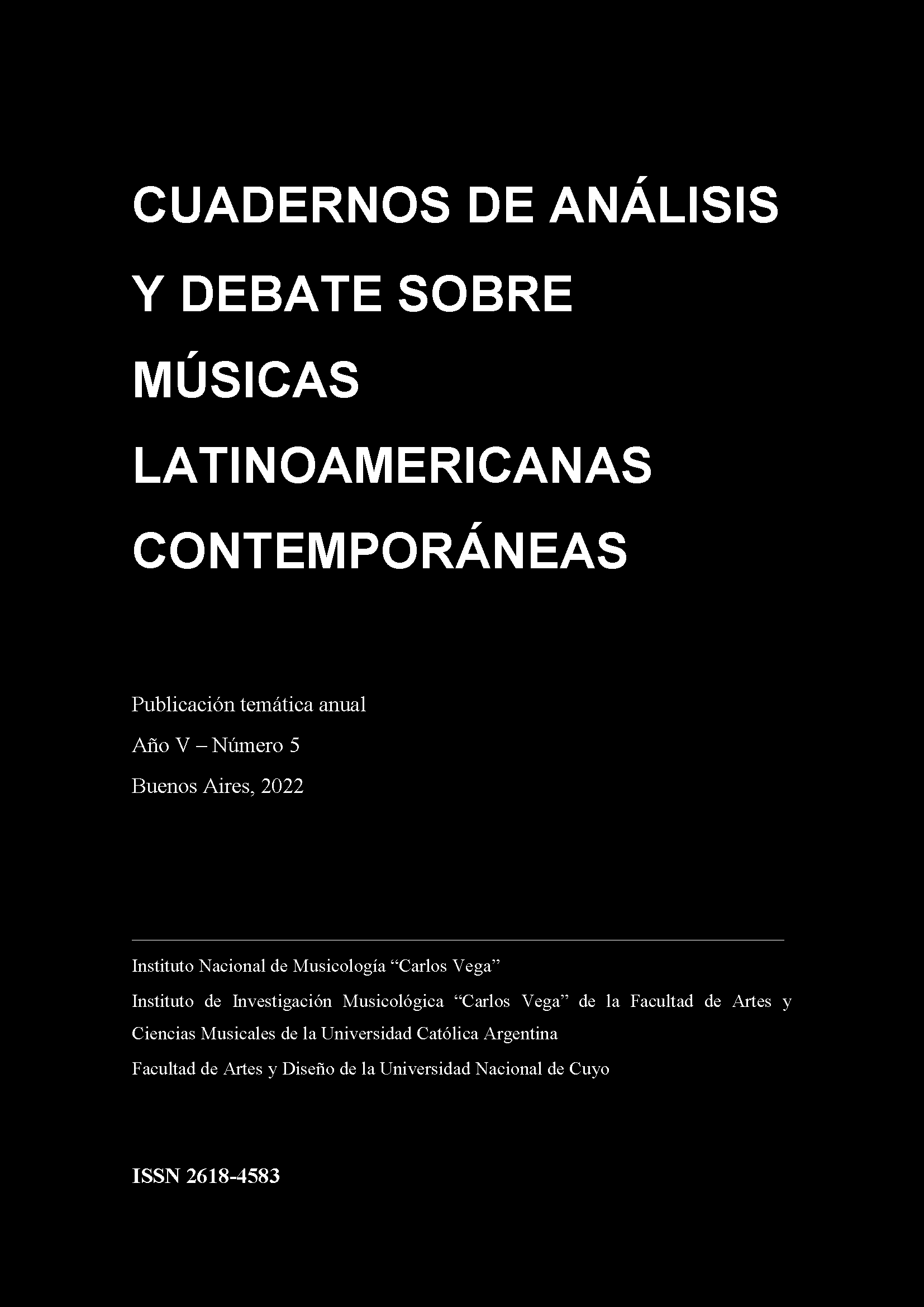“…el ruido de lo roto…”. Un estudio sobre OID de Juan Pampín
Keywords:
aesthetics and politics, Argentinian contemporary music, philosophy of musicAbstract
OID is an homage to Darío Santillán and Maximiliano Kosteki by Argentinian composer Juan Pampin (b. 1967). The piece, scored for piano, live electronics, and video consists of a set of variations on the introduction of the piano version of the Argentinian National Anthem, which, according to the composer, ciphers the Argentinian catastrophic destiny.
Not ignoring the composer’s ideas on his piece, we propose that OID offers a singular –musical– perspective of post-2001Argentina. This means that the music is not (just) the testimony of a ‘disaster’, but it also opens a crack which allows for the emergency of a new perspective, an emancipatory power to aid us in rethinking the present and the future.
To go through this aesthetic political operation, we analyze Pampin’s piece by looking for moments where compositional technique and aesthetic discourse intersect. To do this, we follow Theodor Adorno’s critique of Gustav Mahler, which gives us clues to understand the destructive-constructive process that of this work. It is not about reconciling our broken national identity, but to embrace this fracture, its deformity, and to amplify it, thus providing a way to allow the defeated to speak up.
Downloads
References
Adorno, Th. W. (2008). Obra completa, 13. Monografías musicales. Madrid: Akal.
Adorno, Th. W. (2011). Obra completa 18. Escritos musicales V. Madrid: Akal.
Agamben, G. (2017) ¿Qué es la filosofía? Buenos Aires: Adriana Hidalgo.
Buch, E. (2013). O juremos con gloria morir. De la Asamblea del año XIII a Charly García. Buenos Aires: Eterna Cadencia.
Caplin, W. (1998). Classical Form. A Theory of Formal Functions for the Instrumental Music of Haydn, Mozart and Beethoven. New York: Oxford University Press.
Debord, G. y Wolman, G. J. Mode d’emploi du détournement. Les Lévres nues, mayo 1956.
Fleisner, P. y Lucero, G. (coord.). El situacionismo y sus derivas actuales. Buenos Aires: Prometeo.
García L. I. (2013). “Apostilla a la industria cultural” en Adorno, Th. W. y Horkheimer, M. La industria cultural. (pp. 85-155). Buenos Aires: El Cuenco de Plata.
Guisasola, D. (2017). Los usos de la tradición de Leopoldo Marechal y Leónidas Lamborghini: peronismo e identidad nacional. AnMal Electrónica, 43, p. 85-98.
Jorge, G. (2016) “20 entradas sobre Lamborghini y sus reescrituras” en Lamborghini, L. (2016). El genio de nuestra raza. Las reescrituras. (pp. 7-19). Buenos Aires: Mansalva.
Jorge, G. (2017). La poética de la reescritura en Leónidas Lamborghini: significación cultural y vínculos con poéticas de la ‘traducción posesiva’ en Caracol, 5, p. 140-177.
Pampín, J. (2007). “Ética, poética, política” en Fessel, P. Nuevas poéticas en la música contemporánea argentina. Escritos de compositores (pp. 245-256). Buenos Aires: Biblioteca Nacional.
Sztulwark, D. (2019). La ofensiva sensible. Buenos Aires: Caja Negra.
Viejo, B. (2008) Música moderna para un nuevo cine. Madrid: Akal.
Downloads
Published
How to Cite
Issue
Section
License
Copyright (c) 2022 Daniel Halaban

This work is licensed under a Creative Commons Attribution-NonCommercial-ShareAlike 4.0 International License.







